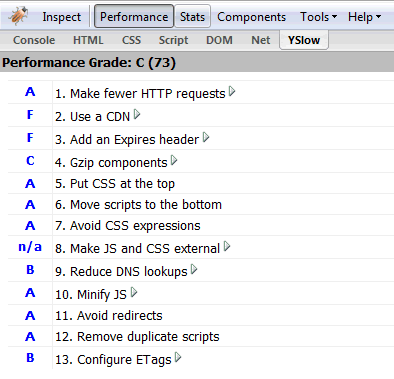On Managed Code Performance, Again
Managed code may be fat and slow, but it fares surprisingly well in Rico’s C# port of Raymond Chen’s C++ Chinese/English dictionary reader:

Sure, the C++ version eventually outperforms the managed code by a factor of 2x, but what’s interesting to me – and what this graph makes very clear – is that the point of diminishing returns has set in well before that happens. As Rico notes:
So am I ashamed by my crushing defeat? Hardly. The managed code achieved a very good result for hardly any effort. To defeat the managed version, Raymond had to:
- Write his own file/io stuff
- Write his own string class
- Write his own allocator
- Write his own international mapping
Of course he used available lower level libraries to do this, but that’s still a lot of work. Can you call what’s left an STL program? I don’t think so, I think he kept the std::vector class which ultimately was never a problem and he kept the find function. Pretty much everything else is gone.
So, yup, you can definitely beat the CLR. I think Raymond can make his program go even faster.
It’s a pyrrhic victory once you divide the execution time by the development time of a top Microsoft C++ coder.* Now, for certain applications at the very tip of the development pyramid, this tradeoff may still make sense. But that list of apps gets shorter and shorter with every passing day.
*Raymond Chen, who has “fixed more Windows bugs than you’ve had hot dinners.”







